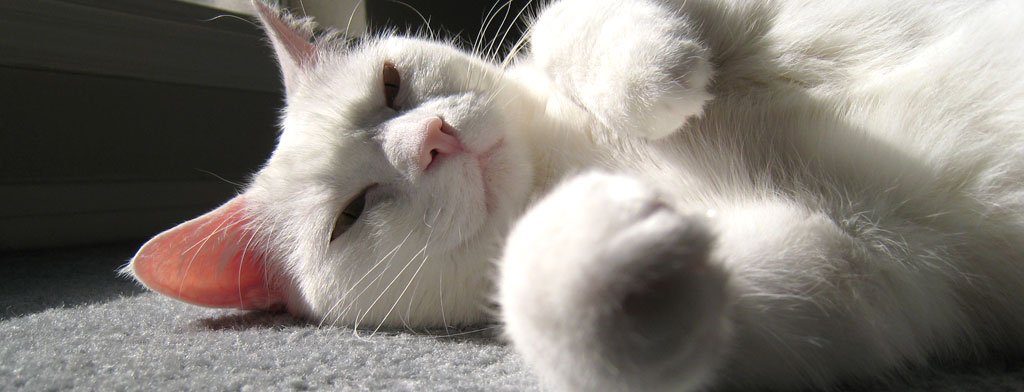Vision problem cat CVC

37 Kingsway
Cronulla NSW 2230 AU
02 9527 2604
cronullavetclinic@gmail.com

Vision problem
Cats are great at hiding ailments but picking up early signs of vision problems is important in preventing permanent blindness.
Overview
Cats, with their elliptical pupils, are able to detect movement much better than human eyes, making them ideal for hunting. Their field of vision is about 200°. They have a shiny membrane, the tapetum lucidum, at the back of their eyes. This allows them to see in low light. In a dark room, this shiny membrane will reflect light from a flashlight. They also have a third eyelid that protects their eyes from injury when out in the dark or hunting.
Blindness is the inability to see as clearly and is often detected when pets start walking into objects. It can be partial or complete. Vision loss can occur over a period of time or suddenly and is more commonly seen in middle-aged to older cats. Sudden vision loss is a serious problem and requires immediate veterinary care.
Signs
Common signs of vision loss:
- Bumping into things
- Falling off furniture
- Not interested in activity or play
- Cloudiness of the eye
- Increased anxiety
Sudden blindness occurs more commonly in older cats with hypertension rather than young cats. These cats appear confused and fearful. Whereas cats that have had time to adapt to deteriorating sight are more relaxed.
Cats that show signs of sudden blindness should be seen by a veterinarian immediately as the earlier the detection the better the prognosis.
Simple tests for you to try at home to determine if your pet has vision loss:
- From a small distance, shine a light towards your cat's eye, one at a time. Both eyes should blink normally no matter what side the light is being shone towards.
- Move an object suddenly towards the eye (without creating an air current). The eye should blink as a natural protective response towards a possible threat. This is called a Menace reflex)
- Try an obstacle course both in daylight and dim light.
Causes
Common causes of vision loss:
- High blood pressure
- Metabolic or endocrinologic disease
- Retinal detachment
- Cataracts
- Night blindness
- Infection
- Conjunctivitis
Management
Senior pets can adjust quite well to slow-onset blindness by relying on their sense of smell, hearing, and knowledge of their home environment.
Tips that may help a senior pet with slow-onset blindness:
- Keep the home environment as unchanged as possible
- Keep to a strict routine of feeding, exercise and rest
- Place bells on the other pet's collars
- Secure the property to prevent access to the road
- Place barriers around large areas of water such as pools, spas or ponds
- Verbalise all commands
Prevention
Blindness due to high blood pressure can easily be prevented with regular veterinary examinations. This is important as once sudden blindness occurs, very few cats regain their sight.
Pets that suddenly start bumping into things should be seen by a veterinarian immediately. In some cases we can reverse the sudden blindness when treatment is started before permanent damage has occurred.